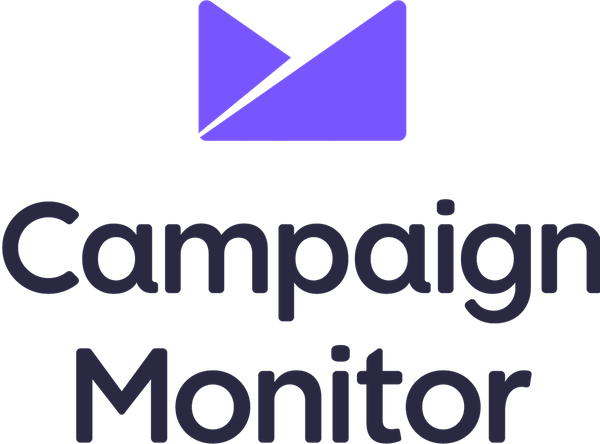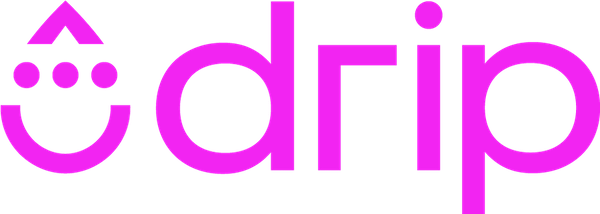Best Email Marketing Software & Platforms 2021 | SBC - Small Business Computing
Email marketing is a marketing must-have for businesses that are looking to grow their owned audiences and improve their marketing ROI. However, successful email marketing requires the right software in place to help businesses manage email campaigns efficiently and effectively. We've rounded up the top email marketing software and platforms for small businesses to help you determine which one is right for you.
Jump to:
What is email marketing software?
Back to top
Email marketing software is a type of application that allows businesses to manage large-scale digital marketing campaigns via email. Unlike social media or display advertising, email marketing is a form of direct marketing that a customer or prospect has already signed up to receive. Email marketing software, then, helps businesses manage their contacts, email content, and campaign performance.
Small business email marketing software comparison
Back to top
All of the vendors in this comparison include features for audience segmentation, campaign automation, A/B testing, email personalization, custom templates, send time optimization, and drag-and-drop email design. The chart below compares some of the distinguishing features among our top picks for small business email marketing software.
| Mailchimp | Hubspot | Sendinblue | Campaign Monitor | Drip | Active Campaign | |
| Subscription preferences | Yes | Yes | No | Yes | Yes | Yes |
| Multivariate testing | Yes | No | No | No | Yes | No |
| Retargeting | Yes | Yes | No | No | No | Yes |
| SMS marketing | No | No | Yes | No | Yes | Yes |
| Live chat | No | Yes | Yes | No | No | Yes |
| Dynamic content | Yes | No | No | Yes | Yes | Yes |
| Behavioral targeting | Yes | No | No | No | Yes | Yes |
| Landing pages | Yes | Yes | Yes | Yes | No | Yes |
Mailchimp: Best for targeting
Back to top

Mailchimp offers many built-in creative tools that make it easy to design professional-looking emails and landing pages without a graphic designer. Its segmentation features give marketers the ability to target groups based on their location, purchase history, or specific behaviors. This information can also be used to tailor the information in the email with Mailchimp's Dynamic Content tools. It doesn't have as wide a range of features as some of the other email marketing tools on this list, but it's one of the most popular tools on the market today.
Pros
- Affordable
- User-friendly interface
- Intelligent segmentation features
- Many integrations with CMS, CRM, and social media tools
Cons
- Limited number of contacts and monthly email sends
- Difficult to manage multiple audiences
HubSpot: Best for CRM integration
Back to top

HubSpot was built as a customer relationship management (CRM) tool first, which is why we included it in our list of the Best CRM for Small Business. However, it also functions as a powerful solution for digital marketing with email, live chat, display advertising, blogging, and social media features included. This provides a single view of all customer details from the minute they first interact with a business until they become an established customer. Its pricing may be cost-prohibitive for smaller companies, but it minimizes the number of tools needed to run a business overall.
Pros
- All-in-one digital marketing solution
- Smart tools for deliverability optimization
- Strong automation features
Cons
- Can be expensive if you want more features or need a higher email send limit
- Non-email features can be confusing to navigate
- No standalone email marketing option
Sendinblue: Best for ease of use
Back to top

Sendinblue is one of the easiest to use email marketing applications on this list. It doesn't offer many step-by-step tutorials, but its interface is fairly straightforward and easy to navigate. Sendinblue is also one of the only options that includes live chat and SMS marketing tools for all users, though SMS messages require a separate fee to send. Plus, it doesn't limit the number of contacts like most other email marketing vendors. All of these considerations together make Sendinblue a compelling solution for businesses that are just starting out but have big growth goals.
Pros
- Live chat and SMS features available with free plan
- Extremely easy to use for beginners
- Unlimited contacts
Cons
- Limited tracking and analytics features
- Some features are only available as add-ons
- Missing some deliverability safeguards
Campaign Monitor: Best for scalability
Back to top

One of the biggest benefits Campaign Monitor offers is its scalability. All pricing tiers offer unlimited users, which is ideal for teams that are growing quickly. Customers who opt for the Unlimited or Premier tiers have no limit to the number of emails they can send in a month, though the monthly cost increases as more people are added to the contact list.
Campaign Monitor also offers a number of unique features for creating high-quality email templates that are customized, on-brand, and tailored to various audience segments. There are very few options for omni-channel marketing like SMS, live chat, or social media, but Campaign Monitor integrates easily with a wide range of apps for these needs and more.
Pros
- Unlimited users
- Unlimited monthly email send
- Impressive template library
Cons
- Lackluster customer support
- Limited omni-channel marketing tools
Drip: Best for e-commerce
Back to top

We designated Drip as the best CRM tool for e-commerce businesses, and the same is true from an email marketing perspective as well. It integrates with most e-commerce platforms, but there is also a REST API for custom online stores that don't have a direct integration. Automated workflows include email and SMS, so businesses can use both channels for various campaigns like abandoned cart reminders, post-purchase follow up, and at-risk customer win-back. Drip doesn't have any native tools for managing social media or display advertising, but the Zapier integration offers a nice workaround for these needs.
Pros
- Behavior-based automation workflow templates
- Unlimited monthly email send
- Straightforward e-commerce integrations
Cons
- No features for landing pages or social media marketing
- Email support only for small-scale users
ActiveCampaign: Best for automation
Back to top

ActiveCampaign stands out for its automation features. It's the only email marketing solution that offers automation mapping, which allows users to see how various workflows connect to each other. It also offers high-level reporting that helps determine which types of automations work best and adjust accordingly. Additionally, ActiveCampaign's Dynamic Content feature automatically populates the email content and CTA based on specific goals, like nurturing, converting, or upselling. It might be a bit too advanced and expensive for beginners, but it offers many of the capabilities that growth-stage businesses need.
Pros
- Automation mapping
- Hundreds of integrations
- Goal-driven dynamic content
Cons
- Less scalable
- Can be difficult for beginners
Email marketing software features
Back to top
Any worthwhile email marketing software will include a few key features that are necessary for basic email needs. Audience segmentation is perhaps the most important—without the ability to target narrower groups of customers, a business wouldn't be able to tailor their messaging to its audience's diverse needs. The segmentation process should happen automatically based on the customer's location, preferences, and stage in the sales funnel.
Compliance checks are another must-have for email marketing tools. Governmental regulations like GDPR, CPRA, and CAN-SPAM keep a watchful eye on the ways businesses use customer data for marketing purposes, so it's essential that an email marketing tool helps maintain compliance. It should include features for email opt-in, advertising transparency, data privacy, and other guardrails that prevent inadvertent regulatory violations.
An email marketing software should also include features for automation. At a minimum, a user should be able to create "if/then" workflows, where a specific action is triggered based on certain criteria. Examples of automated emails include new customer welcome campaigns, birthday emails, and abandoned cart emails. The ability to automate these messages helps save time, but it also ensures that no customers slip through the cracks.
In addition to audience segmentation, compliance checks, and automation, the right email marketing software should also include:
- Drag-and-drop editing tools
- Custom templates
- A/B testing capabilities
- Email personalization
- Third-party integrations
- Analytics and reporting
Benefits of email marketing software
Back to top
Email marketing software offers businesses a number of advantages, which is why it's one of the most important digital marketing tools a business needs. First and foremost, email marketing offers more personalization than social media or display advertising, so it creates a more memorable customer experience. This personalization happens with minimal effort on a marketer's part thanks to automation features, which means email marketing is both more effective and more efficient.
Additionally, email marketing is a necessity for businesses that want to grow their owned audiences. The imminent death of the third-party cookie has created a harrowing outlook for businesses that don't have a way to reach customers outside of social media and other third-party channels. Email marketing is a first-party channel, which means customers have already expressed interest in the business's products or services and signed up to receive marketing communications.
For this reason, email marketing offers the best ROI of all marketing channels. In fact, Litmus's Email Marketing ROI report found that "EU countries plus the UK enjoy an average ROI of 41:1 edging out America's 36:1." This is more than any other type of marketing, including social media, display advertising, and SEO. The fact that email marketing audiences are innately optimized for conversions means it's also an effective medium for testing new products or messaging to better understand customers' wants and needs.
How to choose the best email marketing software
Back to top
Ultimately, the best email marketing software for your business depends on your unique needs and priorities. Some solutions are better than others for targeting, integrations, ease of use, scalability, e-commerce, and automation. You should first identify what you're looking to get out of your email marketing software and let that guide you toward the right vendor. To narrow down your list, look at reviews from other customers whose needs are similar to your own. Consider test driving the software for yourself by signing up for a demo or free trial before committing to one.
Comments
Post a Comment